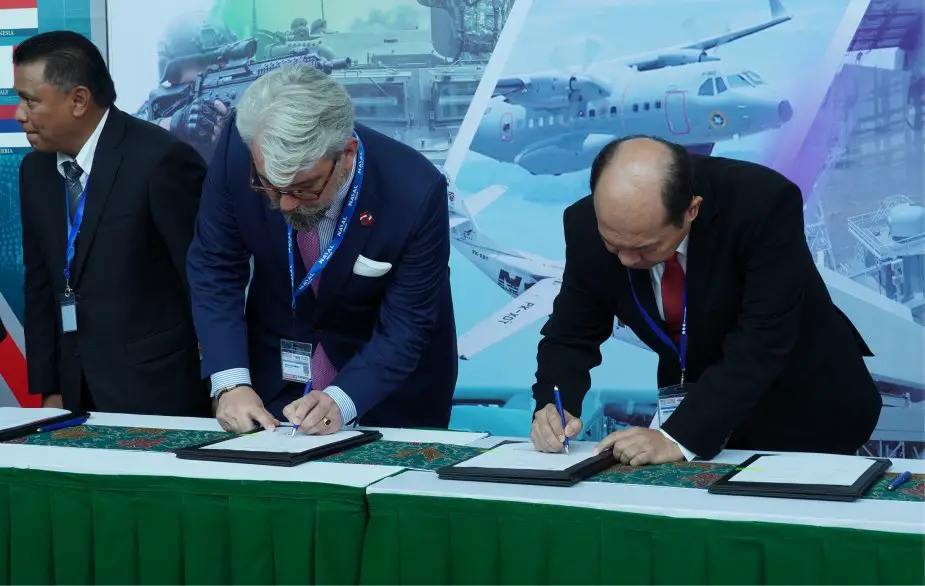Breaking news
Naval Group & PT PAL sign a MoU at Indo Defence to develop new Li-Ion battery.
According to a PR published by Naval Group on November 2, 2022, the French firm and PT PAL signed a Memorandum of Understanding (MoU) to start the creation of an Indonesian Energy Research Lab to cooperate on energy and propulsion solutions in the naval field.
Follow Navy Recognition on Google News at this link
 Signature between Nicolas de La Villemarqué and Dr. Karahuddin Djenod, CEO of PT PAL. (Picture source: Naval Group)
Signature between Nicolas de La Villemarqué and Dr. Karahuddin Djenod, CEO of PT PAL. (Picture source: Naval Group)
Naval Group and PT PAL, together with other Indonesian industry and research partners, are working on an ambitious R&D collaboration project to prepare the future of naval technologies.
This project consists of the creation of the Indonesian Energy Research Lab to develop, in Indonesia, the next generation of submarine energy solutions. This network will bring together industry and research partners as well as universities.
Within the framework of their strategic partnership in the submarine domain signed in February 2022 and that of the strategic partnership between Indonesia and France, Naval Group and PT PAL are committed to strengthening Indonesian maritime autonomy and sovereignty as well as creating longterm economic benefits, including highly qualified jobs, over the very long term in the country.
Several key Indonesian stakeholders (academics, industrial partners, scientists) have been identified to develop the next generation of submarine energy solutions. They will work together on various research and development topics such as embedded electrical network, new energy storage or new generation Li-Ion battery.
On 2nd November, Naval Group and PT PAL also signed a Memorandum of Understanding with PT Garda which will develop and maintain lead batteries in Indonesia, in the framework of the Energy Research Lab, thanks to a transfer of technology and knowledge from Naval Group.
A Lithium-ion or Li-ion battery is a type of rechargeable battery which uses the reversible reduction of lithium ions to store energy. It is the predominant battery type used in portable consumer electronics and electric vehicles.
It also sees significant use for grid-scale energy storage and military and aerospace applications. Compared to other rechargeable battery technologies, Li-ion batteries have high energy densities, low self-discharge, and no memory effect (although a small memory effect reported in LFP cells has been traced to poorly made cells).


























